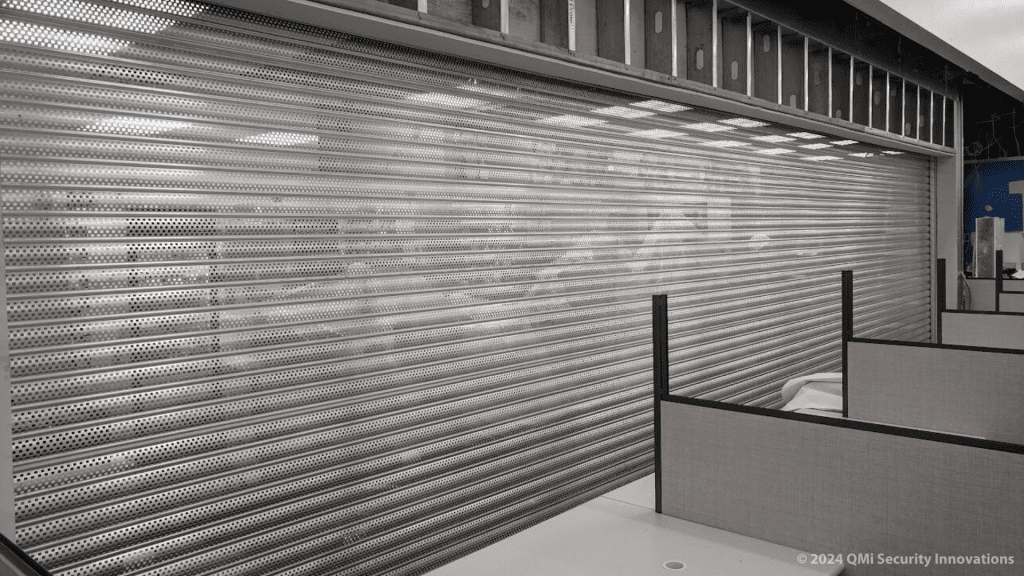Pharmacies are essential healthcare providers in our communities, ensuring people have access to necessary medications and health services. However, their valuable inventory, especially controlled substances, makes them increasingly vulnerable targets for theft and break-ins. As security threats evolve, they must implement comprehensive pharmacy security systems to protect their inventory, staff, and customers.
Recent statistics paint a concerning picture: according to DEA data, there are approximately 7,134 pharmacy theft incidents annually, with 91% of these being burglaries and break-ins. In 2023 alone, pharmacies faced losses of over $8.4 million due to burglaries. With these alarming numbers, investing in robust pharmacy security systems is no longer optional. It's essential.
The Growing Threat Landscape for Pharmacies
Modern pharmacies face multiple types of attacks:
- After-hours break-ins: Criminals target closed pharmacies to steal high-value medications, especially controlled substances.
- Smash-and-grab attacks: Quick, forced-entry thefts that target specific high-value medications.
- Armed robberies: The DEA reported 119 pharmacy robberies in 2023, putting staff and customers at risk.
- Employee theft: Internal diversion accounts for approximately 30% of pharmacy crimes, according to DEA estimates.
- Organized retail crime: Sophisticated criminal networks increasingly target pharmacies for their high-value inventory.
These threats require a multi-layered security approach, building layers of protection, combining physical barriers, surveillance, access control, and proper protocols.
Essential Physical Security Measures for Pharmacy Security Systems
Securing Entry Points

Physical security is the first line of defense for any pharmacy. This can include:
- Rolling Security Shutters: Commercial rolling security shutters provide superior protection against forced entry attempts. AL8 commercial security shutters offer unmatched strength against heavy impact and smash-and-grab attacks. For pharmacies requiring visibility even when secured, LX6 clear shutters blend formidable security with a stunning design that allows light penetration and visibility. For pharmacies with extra-wide openings, XL commercial security shutters provide comprehensive coverage without compromising on security.
- Pharmacy Security Grilles: Side-folding security grilles provide flexible protection for shaped spaces and merchandising areas. These grilles can be easily deployed after closing and retracted during business hours, making them ideal for pharmacies in shopping centers. They offer security against theft and unauthorized access while maintaining visual appeal.
- Reinforced Pharmacy Windows: Pharmacy windows are particularly vulnerable points of entry. Transaction windows should be designed specifically to provide security, safety, and confidentiality. Reinforced pharmacy windows with security glazing can resist impact from common burglary tools while maintaining a professional appearance.
Protecting the Pharmacy Counter and Dispensing Areas

The pharmacy counter is the central operational area that requires special security consideration:
- Side-Folding Grilles: Side-folding security grilles are perfect for securing pharmacy counter areas. These space-efficient solutions provide quick deployment and enhanced security for the dispensing area where controlled substances are handled. Grilles protect medication prescriptions from forced entry while allowing for easy operation during business hours.
- Surveillance Systems: High-resolution cameras should cover all entrances, exits, and the pharmacy counter. Cameras must be correctly positioned to record full-face views and should offer date/time-stamped images archived for at least 30 days. Include behind-counter surveillance to monitor the prescription area for potential internal theft.
- Access Control Systems: Limiting who has access to the pharmacy area is critical. Biometric authentication systems provide touchless verification and can significantly deter diversion. Implementing multiple layers of security, such as combining biometric access with passcodes, provides comprehensive protection.
Securing High-Value Medications
Controlled substances require additional security measures:
- Security Cases and Safes: Drugs with high potential for abuse should be kept in locked metal safes secured in place and equipped with time-delay locks. Security cases and drug cabinets can be accessed using first-class access control methods.
- After-Hours Protection: A comprehensive security system should include intrusion detection with glass-break sensors, motion detectors, and 24/7 professional monitoring. Silent alarm systems provide discreet protection for pharmacies, allowing for immediate law enforcement notification without escalating dangerous situations.
Completing a Pharmacy Security System
Physical barriers alone aren't enough. A complete pharmacy security strategy includes:
- Staff Training and Protocols: Train staff to recognize suspicious behavior, properly secure controlled substances, and respond appropriately to security threats. Establish clear protocols for opening, closing, and handling high-value medications.
- Alarm Systems: Alarm systems with multiple panic buttons and remote triggers provide staff with immediate means to call for help. Silent alarms are particularly effective during robbery attempts. Alarm codes should be changed frequently and carefully safeguarded.
- Strategic Lighting: Proper lighting both inside and outside the pharmacy deters criminal activity and ensures surveillance systems capture clear footage. Motion-activated exterior lighting is particularly effective for after-hours security.
- Regulatory Compliance: Implementing robust security measures helps pharmacies comply with DEA and state regulations regarding the protection of controlled substances. Documentation of security systems and protocols is essential for regulatory compliance.
Investing in Pharmacy Security is Non-Negotiable
As threats to pharmacy security continue to evolve, a proactive, layered approach to physical security is essential. By implementing comprehensive pharmacy security systems, pharmacy owners can protect their valuable inventory, ensure staff safety, maintain regulatory compliance, and build customer trust.
Just as grocery stores have adapted their security measures to address modern threats, pharmacies must invest in physical security solutions that address their unique vulnerabilities. From security gates and shutters to reinforced windows and comprehensive monitoring systems, these investments provide long-term protection against increasingly sophisticated criminal activities.
The bottom line? Security might not generate revenue, but it certainly protects and in today's environment, that protection is invaluable for any pharmacy operation.

